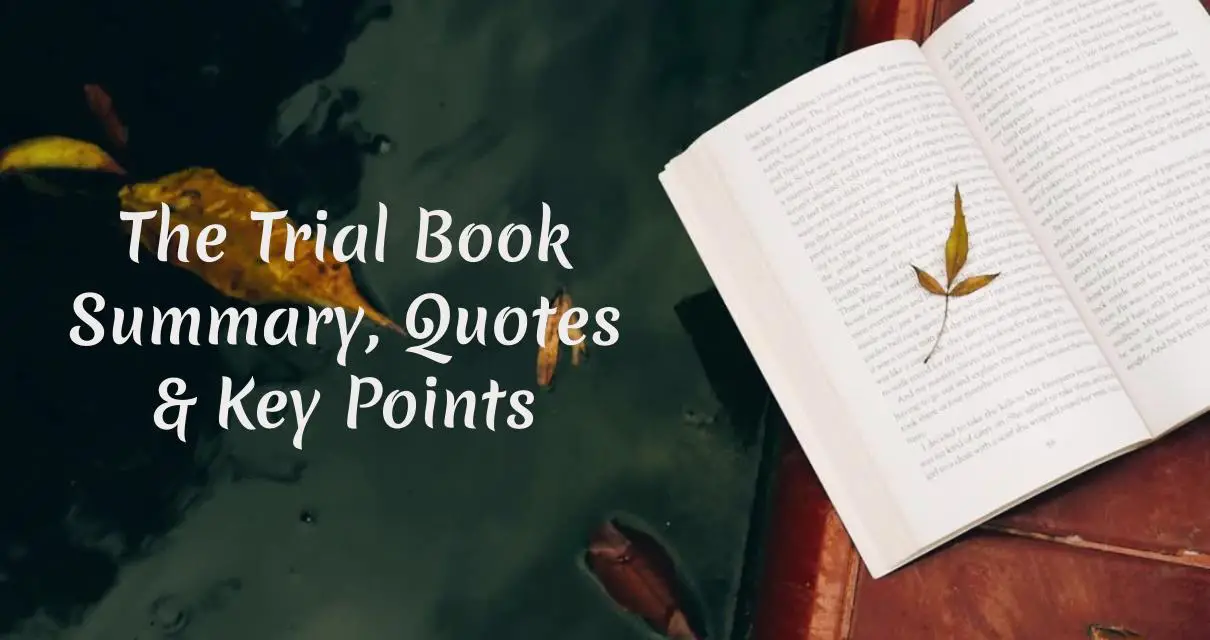The Trial by Franz Kafka is a haunting and surreal novel that explores the absurdity of bureaucracy and the nature of guilt and innocence. In this book summary, we will delve into the plot, characters, themes, symbolism, style, and key points of the novel.
Table of Content
The Trial Book Summary
Plot Summary
The Trial is a novel that follows the story of Josef K., a man who is arrested and prosecuted by a remote, inaccessible authority, with the nature of his crime never revealed to him. As he navigates the labyrinthine bureaucracy of the court, Josef K. becomes increasingly paranoid and isolated, questioning his own innocence and the legitimacy of the justice system.
Characters
The novel features a cast of unforgettable characters, including Josef K., Fraulein Burstner, Huld, Leni, Titorelli, Block, The Priest, The Washerwoman, and The Examining Magistrate. Each character represents a different aspect of the Kafkaesque world, from the faceless bureaucracy to the enigmatic court.
Themes
The Trial explores a range of existential themes, including bureaucracy, law and justice, guilt and innocence, power and authority, alienation, and absurdity. Kafka's writing is a powerful commentary on the human condition, and his themes are timeless and universal.
Symbolism
The novel is rich in symbolism, with key symbols including The Court, The Law, The Doorkeeper, The Whipper, The Painting, The Cathedral, and The Books. Each symbol represents a different aspect of the Kafkaesque world, from the oppressive power of the court to the search for meaning and identity.
Style and Tone
Kafka's writing is dark, surreal, and haunting, with a tone that is both paranoid and ironic. The novel is a masterpiece of modern literature, with a style that is both thought-provoking and unforgettable.
The Trial Book Review
Overview
The Trial is a masterpiece of modern literature that explores the absurdity of bureaucracy and the nature of guilt and innocence. Kafka's writing is powerful and evocative, and his themes are timeless and universal. The novel is a must-read for anyone interested in existentialism, surrealism, or modern literature.
Pros
The Trial features unforgettable characters, thought-provoking themes, and powerful writing that is both haunting and surreal. The novel is a timeless masterpiece that continues to captivate readers today.
Cons
The slow pacing, lack of resolution, and ambiguous ending may not be to everyone's taste. The novel is a challenging read that requires patience and an open mind.
The Trial Quotes
"It's only because of their stupidity that they're able to be so sure of themselves."
"The Court wants nothing from you. It receives you when you come and dismisses you when you go."
The Trial Key Points
Bureaucracy and Power
The novel explores the absurdity and inhumanity of bureaucracy and the powerlessness of the individual in the face of remote, inaccessible authorities. Kafka's writing is a powerful commentary on the dehumanizing effects of bureaucracy and the dangers of unchecked power.
Guilt and Innocence
The novel questions the nature of guilt and innocence, and whether the justice system is capable of distinguishing between the two. Kafka's writing is a powerful commentary on the human condition, and his exploration of guilt and innocence is both thought-provoking and unsettling.
Existentialism and Alienation
The Trial explores the existential themes of alienation, meaninglessness, and the search for identity. Kafka's writing is a powerful commentary on the human condition, and his exploration of existential themes is both haunting and unforgettable.
FAQs for The Trial
1. What is the nature of Josef K.'s crime?
The nature of Josef K.'s crime is never revealed in the novel, adding to the sense of paranoia and uncertainty.
2. Who is the Examining Magistrate?
The Examining Magistrate is a mysterious figure who presides over Josef K.'s case, but whose motives and allegiances are unclear.
3. What is the significance of the Court?
The Court represents the oppressive power of bureaucracy and the dehumanizing effects of unchecked power. It is a symbol of the Kafkaesque world that Josef K. finds himself trapped in.
4. Who is Fraulein Burstner?
Fraulein Burstner is Josef K.'s neighbor and love interest, who becomes increasingly entangled in his case as the novel progresses.
5. What is the role of the painter in the novel?
The painter represents the search for meaning and identity in a world that is increasingly absurd and meaningless.
6. What is the significance of the cathedral?
The cathedral represents the search for transcendence and meaning in a world that is increasingly devoid of both.
7. Who is Titorelli?
Titorelli is a painter who provides Josef K. with advice on how to navigate the court system, but whose motives and allegiances are unclear.
8. What is the role of the whipper in the novel?
The whipper represents the oppressive power of the court and the dehumanizing effects of unchecked power.
9. What is the significance of the books in the novel?
The books represent the search for knowledge and understanding in a world that is increasingly absurd and meaningless.
10. What is the meaning of the novel's ambiguous ending?
The novel's ambiguous ending leaves the reader with a sense of uncertainty and unease, reflecting the Kafkaesque world that Josef K. finds himself trapped in.

